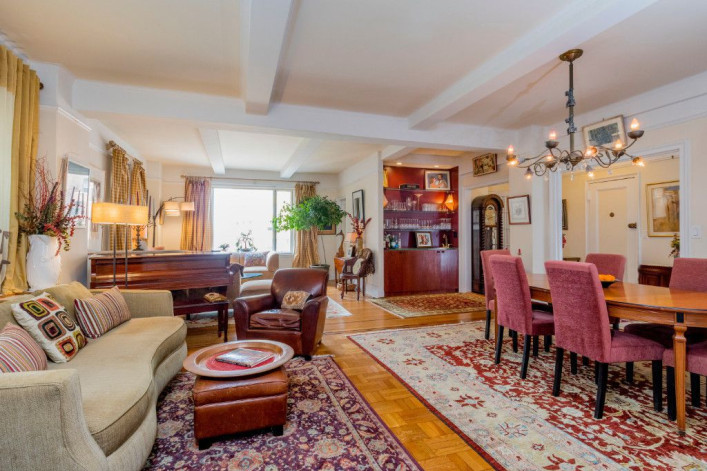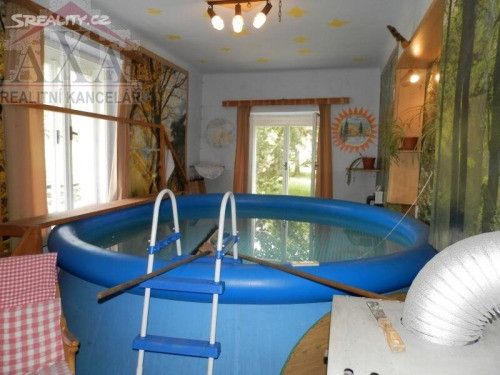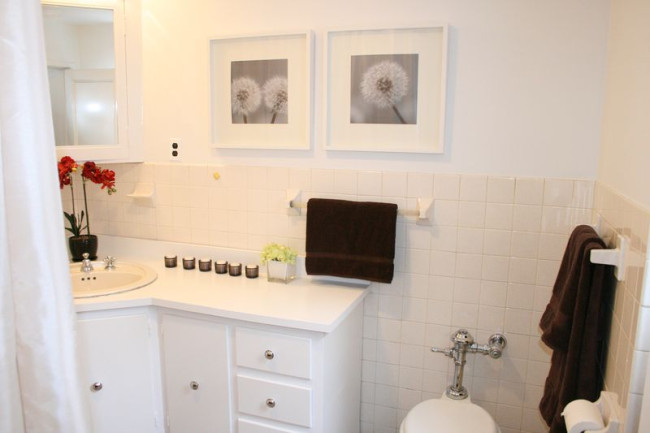4 ways co-op sellers can give new condos a run for their money
If you’re a co-op owner looking to sell, it’s hard to compete with condos on the market these days. Sure, you may love your apartment’s classic layout, your solid building, and your doorman. But that may not seem like much to brag about, not when buyers coming to your open house have just toured a condo with high-end appliances, a marble kitchen island, and an entire floor devoted to amenities.
But for many buyers, co-ops are the way to go. They represent better value and stability, for starters. And in terms of first impressions, there is a lot you can do to freshen up appearances that don’t involve serious renovation.
Brick Underground talked to several brokers about ways co-op sellers can make a winning sales pitch in a condo-crazy market. Here’s what they had to say.
1. Mimic a condo kitchen, and laundry room
Brokers we spoke to say they typically did not recommend sellers renovate their co-ops in order to sell, but there are other ways to incorporate some of the highlights of condos that impress buyers. One is to offer high-end appliances, for example from Liebherr, Sub-Zero, Wolf, or Bosch. These of course cost a pretty penny.
Buyers “want to see modern, clean lines without the traditional handles showing," says Jai Lee, a broker with Mdrn. Residential. "Soft-close drawers and cabinets, of course, are expected. Recessed lighting is a must. If possible, even adding an in-unit washer/dryer unit is a huge plus.”
“Customizing the closets with space-saving designs, soft-close drawers and doors, and automatic lights can add a wow factor and make the home seem more modern and updated,” she adds.
2. Clean and make repairs before you stage
Before you stage an apartment, you need to clean and fix all the little things on your mental punch list that you’ve lived with so long you no longer see.
“Staging is very useful if an apartment looks tired or is difficult to define,” says Stacey Max, a sales manager and broker with BOND New York. “But even more important is a deep cleaning. If the walls are dingy, paint a light but modern color. If the windows are dirty, clean them. Put in new light bulbs. Refinish the floors. Change the hardware in the kitchen. And clean, clean, clean.”
Thinking of selling? To find out what actual buyers are willing to pay for your co-op, condo or brownstone, consider discreetly "pre-marketing" it. New York City real estate brokerage Triplemint has an entire data-driven pre-marketing platform that provides a way to quietly test your asking price and your marketing strategy among real-life qualified buyers before publicly listing your home. There's no charge to participate and no obligation to enter a traditional listing agreement at the end of the pre-marketing period if your place hasn't sold. Click here for more information.
3. Get rid of the heavy furnishings
Success stories from brokers who captured high prices for co-ops had this in common: They carted away almost all of the furniture.
It’s a no-brainer, particularly when you have new buyers today touring sparsely furnished new condos and becoming conditioned to thinking that clean and bare equals high end. But for co-op owners, especially those who have lived in their apartments for a long time, it can be hard to see how your beloved treasures can be a turn-off.
Seth Levin, a broker with the LevinChang Team at Keller Williams NYC, worked with a man and his daughter on the sale of the man's top floor, two-bedroom co-op in Gramercy.
“The seller was elderly and had lived in the apartment for a long time, and it showed," Levin says. “The walls and ceilings were painted dark colors, every inch of wall space was covered in artwork, and even though this particular apartment was quite large, it felt much smaller due to the incredible amount of furniture that was stockpiled in the space.
“The elderly father did not want to paint, stage, de-clutter, or really do anything to get the apartment sold. The daughter thought in that condition it would sell for $1,400,000. I believed $1,500,000 was attainable, but if we painted and even just de-cluttered that $1,600,000 was possible. They hired me, and I was able to get the seller to begrudgingly agree to paint the apartment white and, with the daughter’s help, remove most of the furniture and artwork.”
Levin used some of the remaining furniture to stage the apartment and recommended a price of $1,700,000, But he got $1,750,000 in less than one week on the market.
“Staging works,” he says.
4. Toss the tchotchkes (and, okay, maybe renovate a little)
Keren Ringler, a broker at CORE, tells a similar tale. She was the co-exclusive broker on a listing for three combined apartments that had been on the market for two years. And in her case, renovation was called for after all.
“This duplex apartment was in dire need of a renovation, so I convinced the owner that we needed to do some work. The owner agreed to have a contractor whitewash the walls, which were covered with brocade panels, and remove ceiling panels and carpets throughout the apartment," she says. "This work took two months. After that, I had the apartment staged.” She sold the apartment not long after.
In another case, she represented sellers who had combined two apartments. Even though the place was large, it “was filled with too much furniture of many different styles," she says. "I brought in a stager who pared down and integrated the furniture. He also changed around the paintings, [and] reorganized the books and the tchotchkes.”
Ringler says this work dramatically improved the apartment’s appearance, and the proof is in the closing price.
“We sold the apartment... with the selling price 10 percent above ask,” she says.
You Might Also Like





























